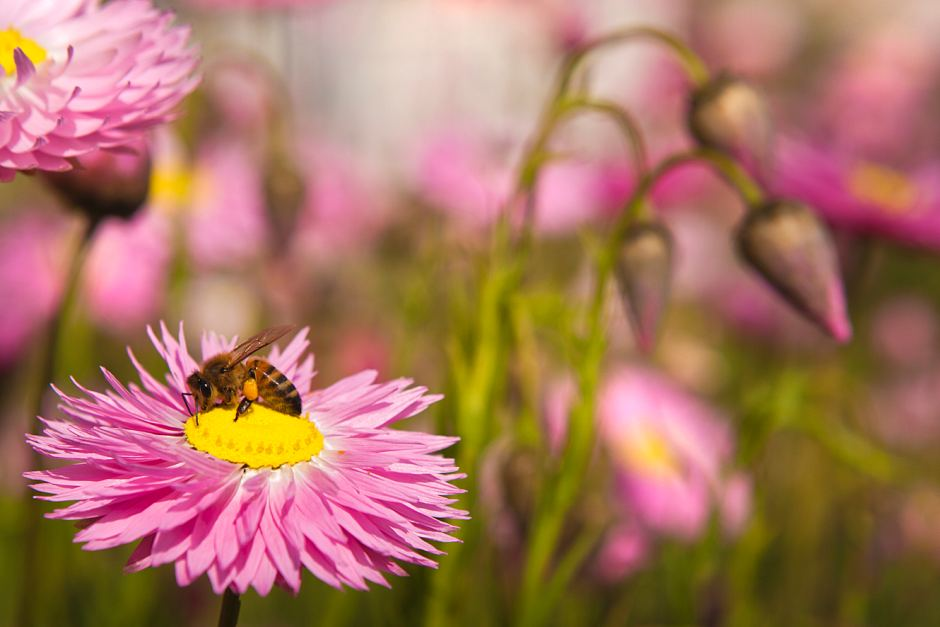
Okay let’s get down to the nitty gritty! Many people are afraid of bees. When Bees come around people usually swat, run, or become super still. However, BEES ARE IMPORTANT to humanity for a very crucial reason. To be frank our food supply can be compromised without the bee population. Scary right?
If you can remember from our first week’s blog, Bees were one of the common pollinators. They are responsible for pollinating all sorts of plants like strawberries, vegetables, nuts, seeds, and onions. Check this out, even dairy products are a part of a food chain that starts with bee pollination.
So now that we all understand the importance of bees. There is a serious problem. The bee population is in big trouble! According to 101 Organic Gardening Hacks, by Shawna Coronado, the U.S. Department of Agriculture considers annual colony losses above 19 percent to be economically unsustainable. A full two- thirds of the American beekeepers are currently suffering losses at more than double that threshold. If this rate continues beekeepers will be out of business and guess what… supermarkets will soon follow. This brings us to say, it is now on us to change our ways to help save the bees. They help us, let’s help them. In your home gardens, you must stop using pesticides. At Green Bridge Growers we use innovative methods to grow sustainable, fresh produce for your table year-round. We grow organically and you can do the same!
Okay let’s tap into some tangible steps.
- The best thing to do is to start planting more pollinating plants organically- WITHOUT chemical fertilizers, pesticides, and herbicides. Let us remind you it does not matter if you have a small apartment or a large farm. Whatever steps people take will help the bees.
- Support local organically grown produce and honey in order to help local beekeepers in your area. Also keep in mind that there are more than just honey bees in the United States. Many other kinds of bees help pollinate our vegetables and we can help them too.
- Plant wildflowers and native plants that support the local bee population. In order to discover what these plants are, consult with your local extension office or independent garden center.
- When planting annual flowers, stay away from plants that might not attract bees. Focus on pollinator plants.
- Let herbs and other plants bolt and flower to feed the bees.
- Provide a fresh water source in your yard to keep the bees refreshed.
--- Lala Petty
 RSS Feed
RSS Feed
